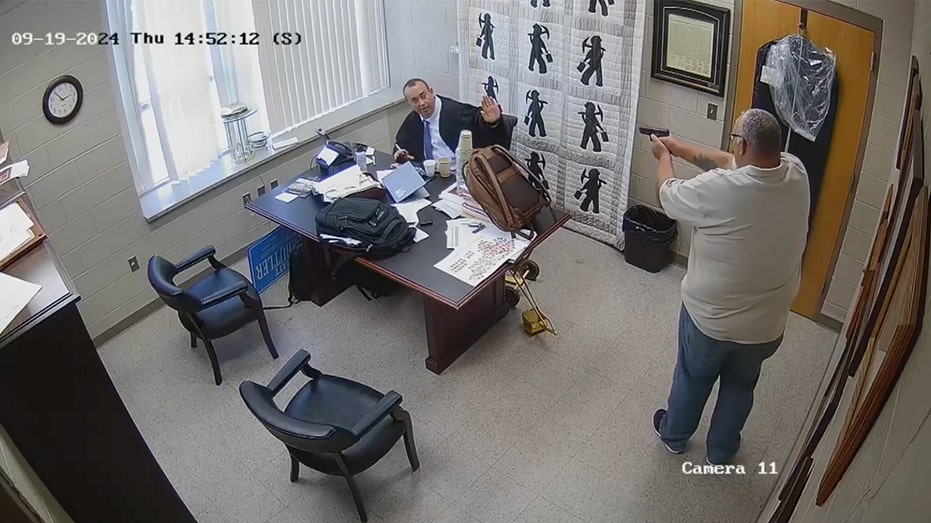Ex-Sheriff Claims Law Violation Led to Judge Shooting, Urges Dismissal of Murder Case
Attorneys for Mickey Stines claim Kentucky botched grand jury proceedings in case linked to Judge Kevin Mullins' death.

The legal battle surrounding former Letcher County Sheriff Shawn "Mickey" Stines took a dramatic turn this week, as his defense team filed a motion to dismiss the indictment accusing him of murdering District Judge Kevin Mullins. The motion argues that crucial grand jury proceedings leading to Stines' indictment in November 2024 were not properly recorded by state prosecutors, allegedly violating Kentucky law and jeopardizing Stines' right to a fair process.
According to the filing, the grand jury was "deprived of information known to the Commonwealth [of Kentucky], sought in question by grand jurors, but not disclosed." Defense attorneys Jeremy and Kerri Bartley assert that jurors were unaware of an ongoing civil lawsuit involving Stines. They claim this lawsuit, which centers on misconduct at the courthouse, may provide essential context for the events that led to the fatal shooting of Judge Mullins in his chambers at the Letcher County Courthouse on September 19, 2024. The shocking incident, captured on surveillance footage, stunned the small Appalachian community, where both Stines and Mullins had been prominent figures for years.
The defense contends that Detective Clayton Stamper of the Kentucky State Police, who led the investigation, gave testimony to the grand jury that was unfairly prejudicial, further undermining the integrity of the indictment. They also reference longstanding allegations of sexual abuse in the Letcher County Courthouse, noting that these scandals form a critical backdrop to the current case. They emphasize that disclosure failures and potentially biased testimony may have critically impacted the grand jury's decision to indict.
Adding to the complexity, just three days before the shooting, Stines participated in a deposition for a civil case against his former deputy, Ben Fields. Fields is currently serving a prison sentence after being convicted of raping a woman inside the courthouse—a crime that occurred in exchange for removing her ankle monitor during criminal proceedings. The defense states that Stines feared for his family’s safety because of what he knew about courthouse misconduct, and suggests threats or pressure may have influenced his actions and mental state in the days leading up to the shooting.
Attorney Jeremy Bartley alleges that Stines felt pressured not to reveal sensitive information during his deposition, particularly regarding incidents in Judge Mullins’ chambers. On the day of the shooting, Stines reportedly made repeated attempts to contact his wife and daughter out of fear for their safety. “He believed that they were in danger because of what he knew to have happened within the courthouse," Bartley said, maintaining that threats had been made to compel Stines’ silence.
Body camera footage from officers who responded to the scene shows a visibly shaken Stines, who appeared paranoid and fearful for his life while being questioned. "Come on, be fair to me now," Stines pleaded with Detective Stamper. "Y'all are gonna kill me, aren't you?... Let's just get it over with. Let's just go."
Stines' defense team has signaled its intention to pursue an insanity defense, citing his apparent mental distress at the time of the shooting. However, legal experts have sharply criticized the strategy, describing it as "frivolous" and unlikely to succeed given the circumstances and available evidence.
As the case proceeds, the court must now weigh the arguments over procedural fairness, potential evidence suppression, and the implications of broader courthouse scandals. The outcome of the motion to dismiss the indictment could have far-reaching consequences—not only for Stines’ fate, but also for transparency and accountability in Letcher County’s justice system. A hearing date on the motion is expected to be set in the coming weeks.




